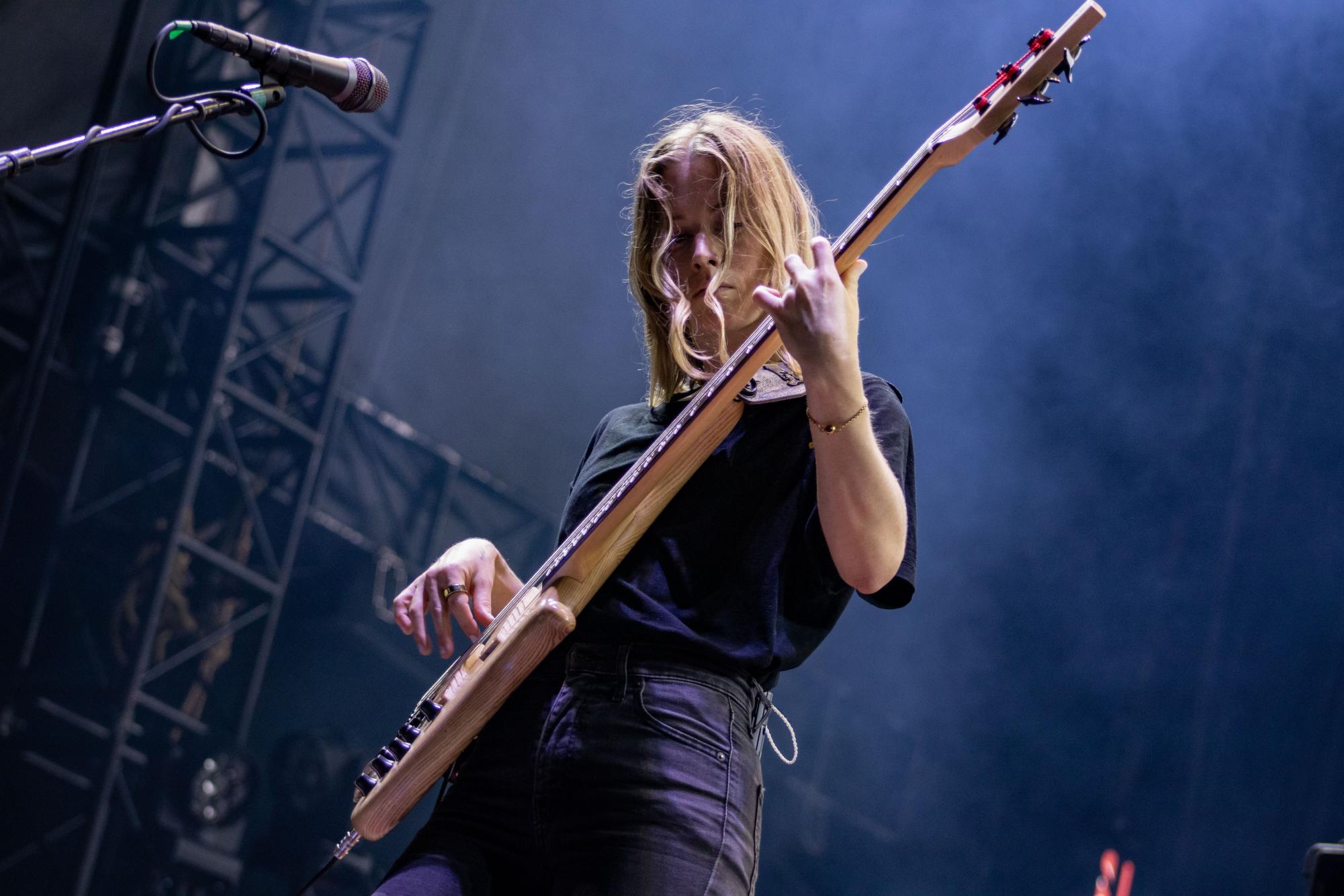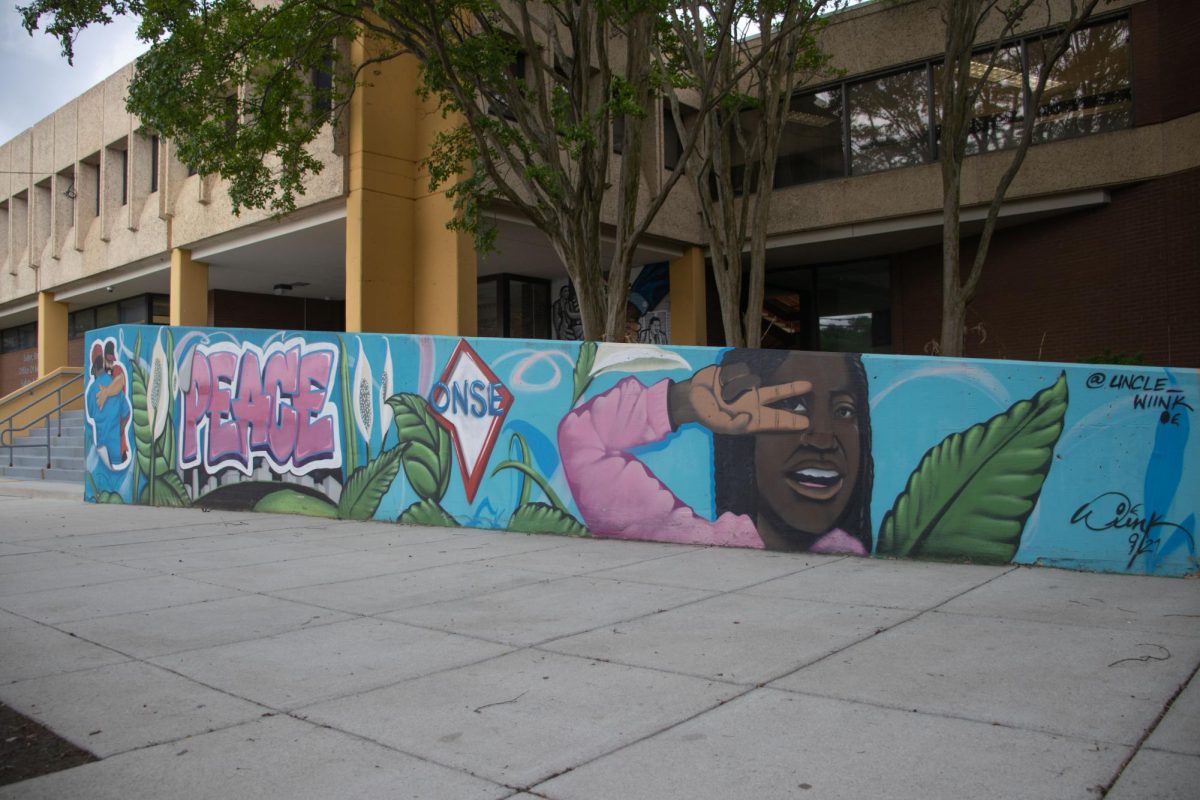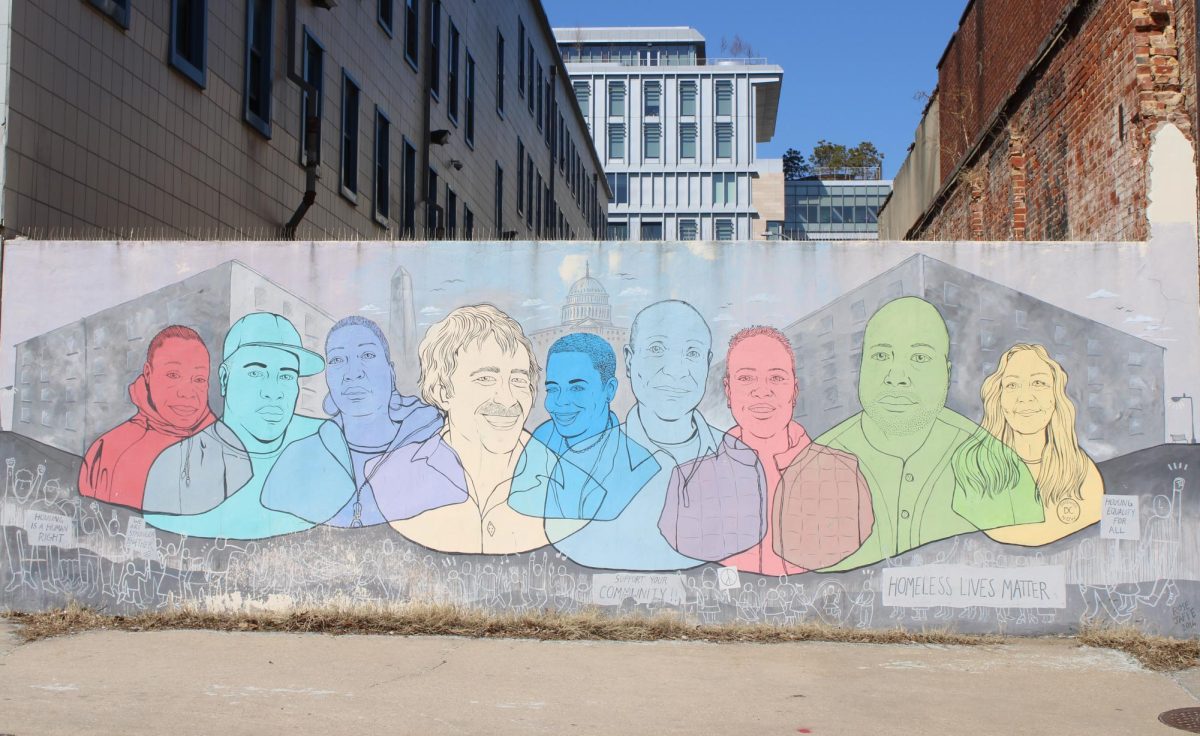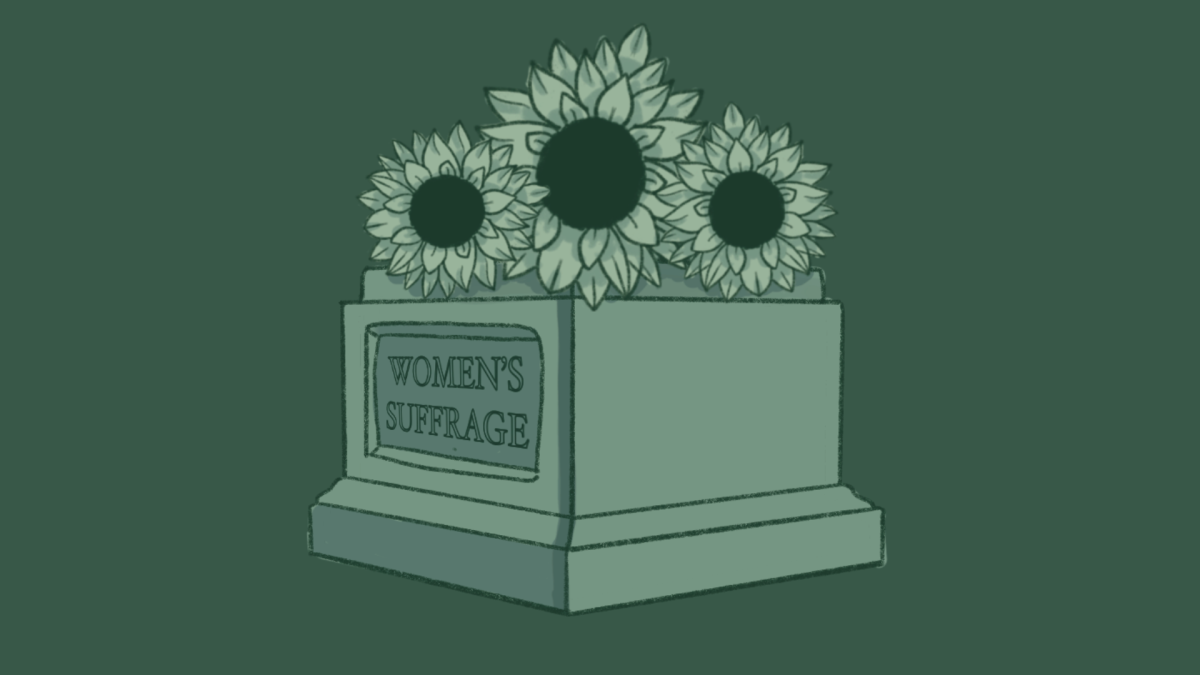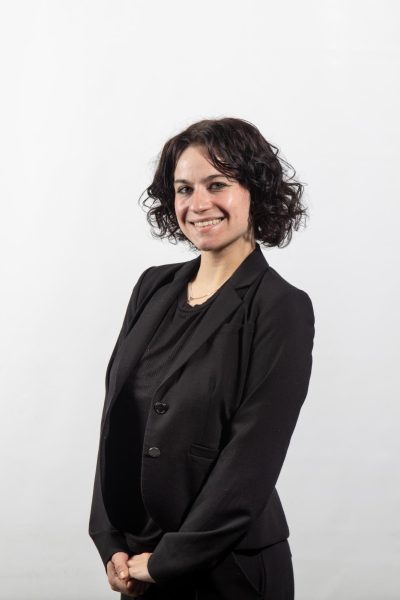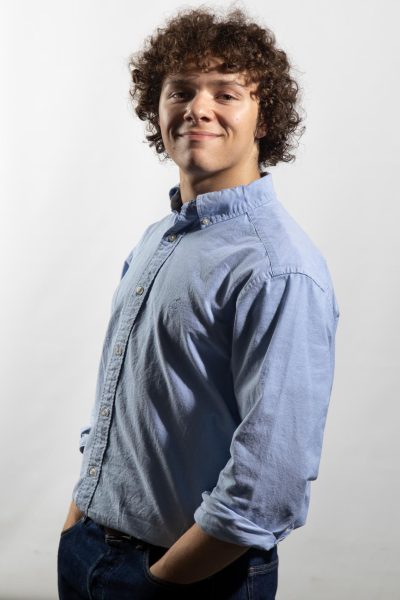When the band Tonic came out on stage at HFStival on Sept. 21, frontman Emerson Hart had one request for the crowd.
“Let’s go back to 1996, shall we?” he said, before launching into a guitar-heavy rock show.
In the crowd, music fans danced along as the alternative rock band played a short ode to their band’s music journey. Though at this early point in the day, the audience was smaller, Tonic wasn’t the only band to reference nostalgia in their set. Lit opened the festival, and frontman Ajay Popoff said that they were “going to take you guys back to 1999.” Violent Femmes said that they’d “returned to the scene of the crime” in reference to their return to the iconic Washington festival.
The bands’ remarks matched the energy some fans said they came to the festival for: finding that same rush they got from the festival’s original run through the ‘90s and ‘00s.
“It being in this kind of setting kind of encapsulates the initial feeling of what it was in the early 1990’s, like 1995 when it was still small, so I guess it’s like trying to give you the same feeling,” Raphael Georgoulias, a festival attendee, said.
Now, the festival that once united young Washington alternative music fans returned to allow attendees to relive that happiness they felt decades ago in hopes that it can continue into the future.
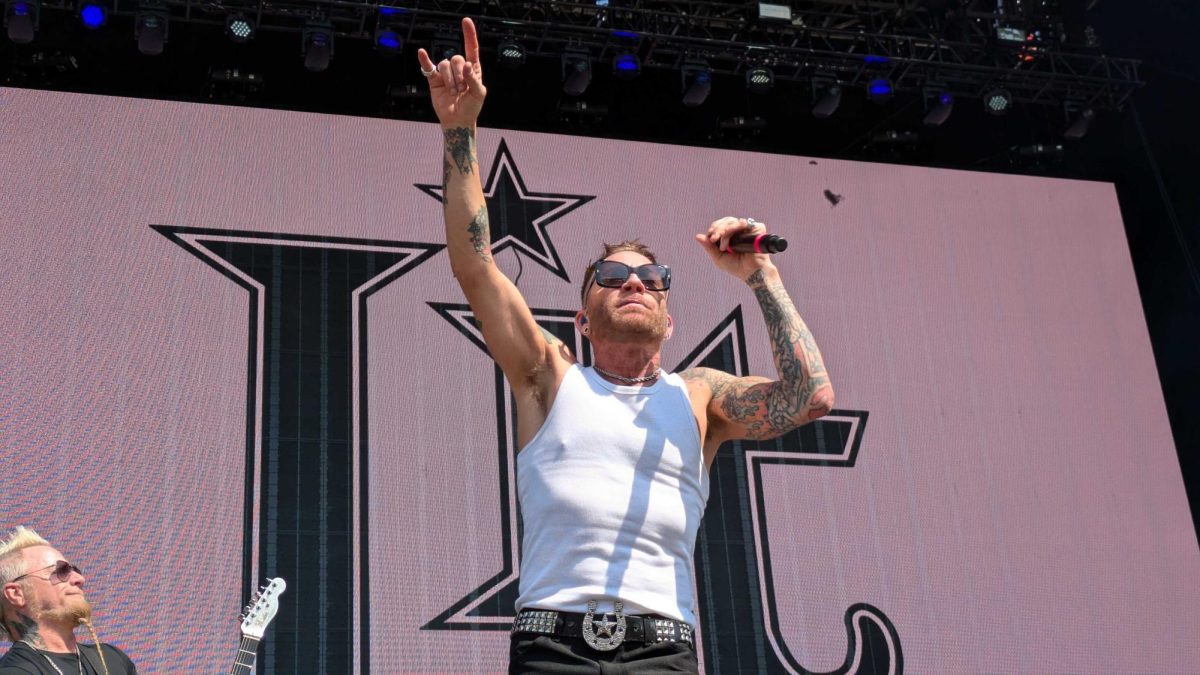
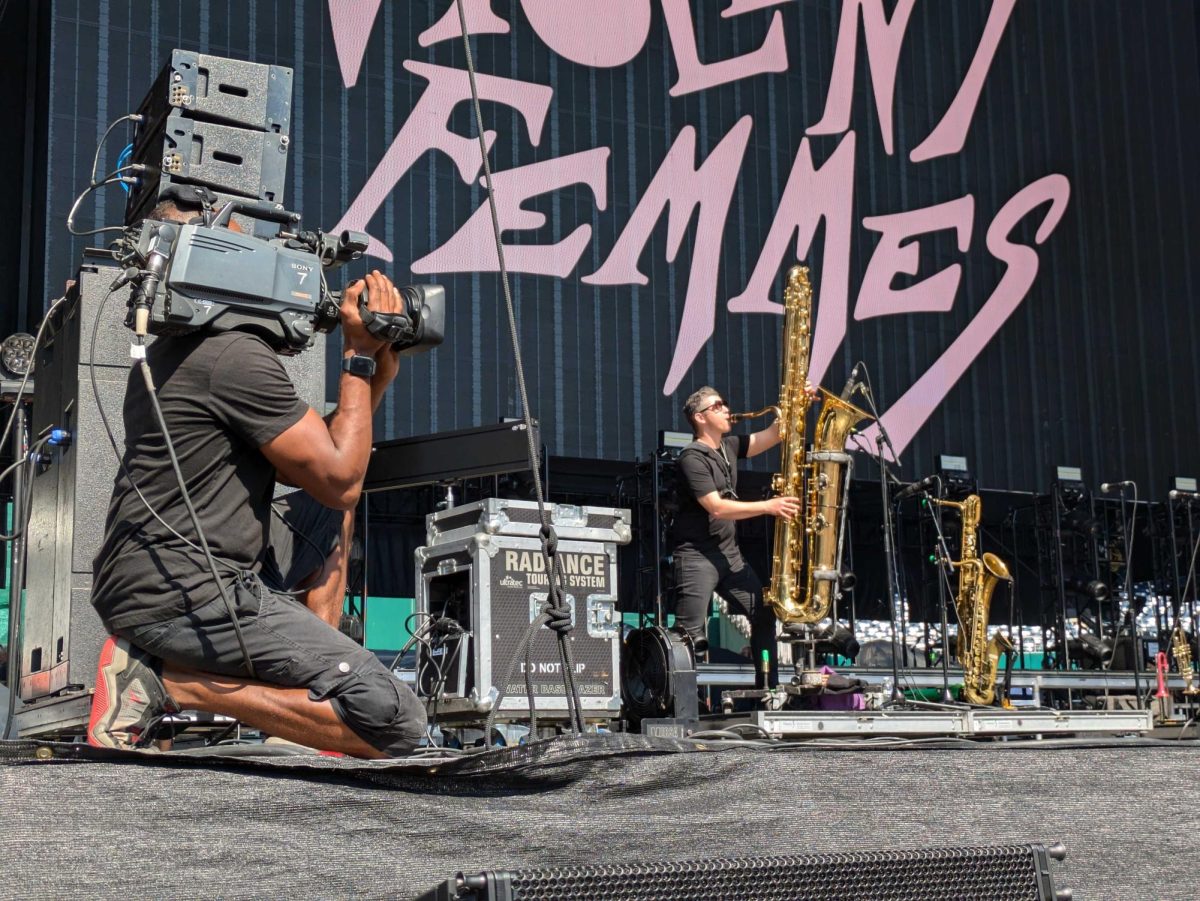
Among those seeing the return was Bob Waugh, a former WHFS 99.1 DJ who first organized the HFStival in 1990, according to a WAMU article. I.M.P., the concert promoters that own venues like the 9:30 Club and the Anthem, wanted to include elements of the festival’s original years. Waugh said that I.M.P. specifically designed the lineup with nostalgia in mind.
“I think I.M.P., in booking the bands that they booked for this first year, wanted it to kind of be a feel- good event for people who had been in the past, and that’s why such a large percentage of the lineup are these older bands that had played it 20 years ago,” Waugh said.
HFStival, during its original run, was a music festival put on by the local Maryland WHFS 99.1, according to a WUSA 9 article. Waugh said his organization of the event turn what was originally a Fourth of July celebration turned into a yearly festival and a DMV staple.
The event hosted names big and small in the ‘90s and ‘00s alternative rock scenes, according to a WUSA 9 article. The lineups featured popular bands, local bands and bands that would go on to gain much more fame, which Waugh attributed to their exposure at HFStival. The festival’s first iteration ran from 1990 until 2006 and again in 2010 and 2011, according to a Washington Post article.
“It was a rite of passage,” Waugh said. “For a lot of people, they might have been in their teens, they might have been attending their first concert. They certainly were attending their first festival because festivals didn’t exist. There was no Lollapalooza, there was no Bonnaroo, there was no Coachella back in those days.”
Continuing a Legacy
When I.M.P. approached Waugh to consult their new version of the festival, he returned to the event that had built the larger part of his career as a radio DJ.
“When they acquired the rights to the HFStival, they reached out and basically said they didn’t want to do it without me, and would I be interested in lending at hand, so I said, ‘Absolutely,’” Waugh said.
This year’s festival, featuring artists popular during the festival’s original iteration, was catered towards a millennial audience, but it appeals to the greater alternative fan base, according to Waugh.
Though it rode on nostalgia this year, I.M.P.’s plan for HFStival gives glimmers of coming back as a way for up-and-coming alternative acts to present themselves to all generations of fans — and a way for fans in the region to build their love for rock and alternative music.
“My hope is that they will continue to try to develop the HFStival,” Waugh said. “The great thing about I.M.P. is that they understand the legacy.”
The festival was well-known for being great to perform from an artist’s standpoint, which is another legacy Waugh said he wants to carry into the future.
“We knew that musicians live a grueling life on the road from one city to the next without simple pleasures and accouterments in life that they may be missing out on, so we wanted the HFStival to be a little oasis,” Waugh said.
WHFS provided a community room for bands to hang out together during the festival, which Waugh said boosted morale and enticed them to play the festival.
“And the other thing we found is that, when that happened, the musicians would go back out on the road, artists talk to each other, and word started to get out, word started to spread, ‘The HFStival is a really cool event,’” Waugh said.
The festival stopped running in 2006, one year after WHFS switched from rock to Latin pop according to an article published by the news site Consequence.
For Georgoulias, though, now was the best time to bring it back.
“It’s really great for someone like me, who’s a huge music-listener from rock to country to electronic all genres,” Georgoulias said. “I just think it’s awesome to see.”
Kevin Murphy attended the festival in 1994 while he was attending American University and again in 2024. He said that the music he heard on WHFS and HFStival shaped his music taste.


“It exposed me to a lot of bands I hadn’t really heard of before,” Murphy said. “A lot of the alternative stuff that was coming up, you can hear it on the radio and at HFStival.”
While 10 of the bands played rock, one artist, Pittsburgh-based DJ Girl Talk, whose real name is Gregg Gillis, performed a DJ set, mixing a variety of genres to stay true to the eclectic nature of his musical project. He gave crowds a 45-minute-long dance party as they bounced inflatables from person to person and danced on stage.
Though Gillis makes music with his laptop rather than with a band, he said he heard about HFStival when he was young by watching an MTV show called “120 Minutes.” He was an alternative music fan in the ‘90s, so the segment and the music featured interested him. He said knowing the festival’s history made him more excited to play the renewed version.
“I’m not from the D.C. area, so I didn’t know the festival in great depth or anything growing up, but I did catch it on TV, and I kind of had a little idea of it,” Gillis said. “And having friends from Washington, D.C., I do know, kind of, the significance of it to the area, so I’m definitely happy to be a part of it.”
Chris Hook had never attended an HFStival before this one, but he grew up on the style of music played on WHFS. He said that he liked that the lineup was made up of nostalgic bands that have grown a lot over the past few decades.
“I think these bands have evolved over the years, right?” Hook said. “They’ve written more albums and they also knew their audience and played to the hardcore [songs that] they knew this audience of this particular age range, I think, would love. And they’ve done a great job.”


